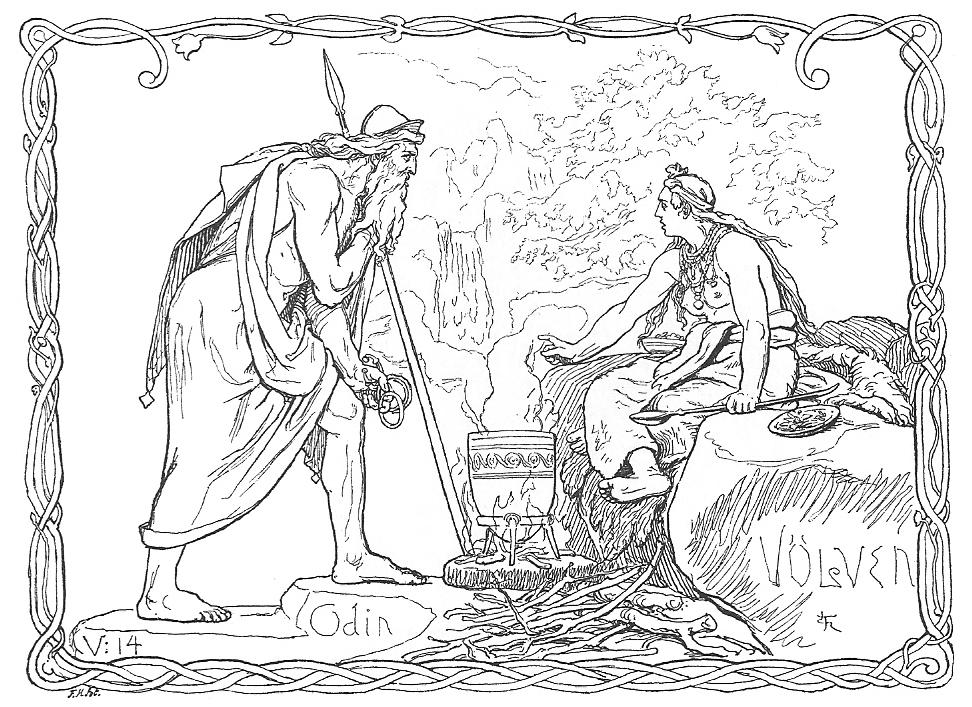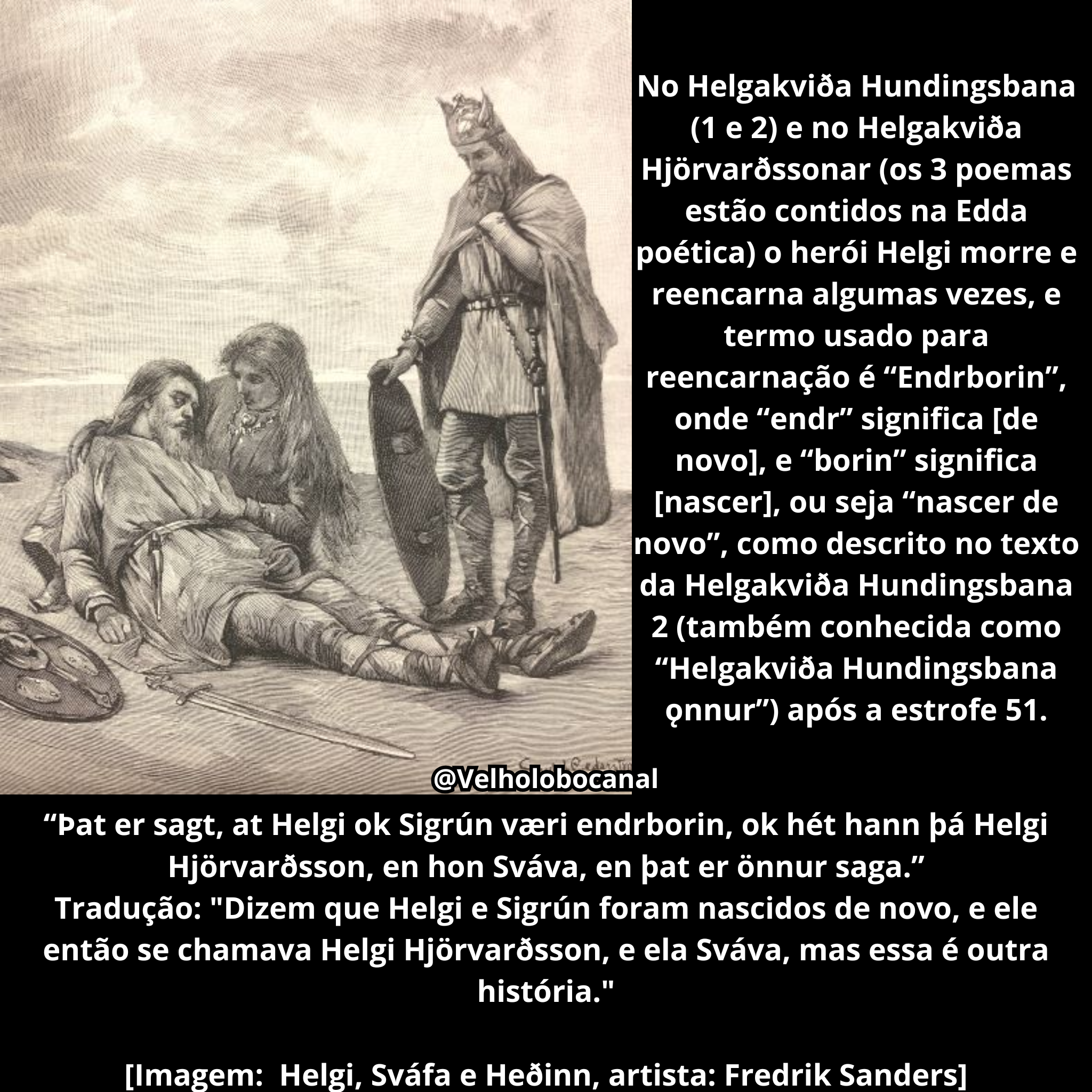[Text in English/Image in Portuguese] In the Helgakviða Hundingsbana (1 and 2) and the Helgakviða Hjörvarðssonar (all 3 poems are contained in the Poetic Edda) the hero Helgi dies and is reincarnated a few times, and the term used for reincarnation is “Endrborin”, where “endr” means
Arthur Gain, and “borin” means [to be born], that is, “to be born again”, as described in the text of the Helgakviða Hundingsbana 2 (also known as “Helgakviða Hundingsbana ǫnnur”) after stanza 51.
“Þat er sagt, in Helgi ok Sigrún væri endrborin, ok hét hann þá Helgi Hjörvarðsson, en hon Sváva, en þat er önnur saga.”
Translation: "They say that Helgi and Sigrún were born again, and he was then called Helgi Hjörvarðsson, and she Sváva, but that is another story."
[Image: Helgi, Sváfa and Heðinn, artist: Fredrik Sanders]
[Text in English/Image in Portuguese] In the Helgakviða Hundingsbana (1 and 2) and the Helgakviða Hjörvarðssonar (all 3 poems are contained in the Poetic Edda) the hero Helgi dies and is reincarnated a few times, and the term used for reincarnation is “Endrborin”, where “endr” means [again], and “borin” means [to be born], that is, “to be born again”, as described in the text of the Helgakviða Hundingsbana 2 (also known as “Helgakviða Hundingsbana ǫnnur”) after stanza 51.
“Þat er sagt, in Helgi ok Sigrún væri endrborin, ok hét hann þá Helgi Hjörvarðsson, en hon Sváva, en þat er önnur saga.”
Translation: "They say that Helgi and Sigrún were born again, and he was then called Helgi Hjörvarðsson, and she Sváva, but that is another story."
[Image: Helgi, Sváfa and Heðinn, artist: Fredrik Sanders]











